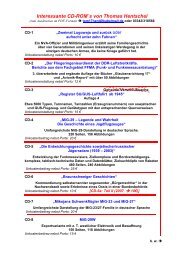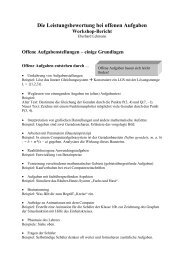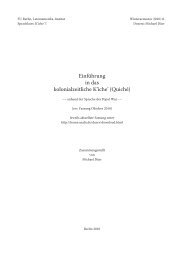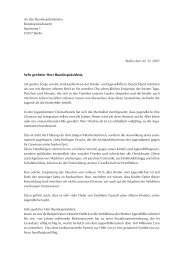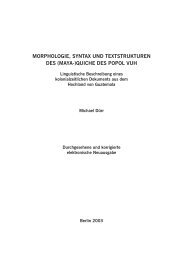SHADOW BOXING: INDONESIAN WRITERS ... - home . snafu . de
SHADOW BOXING: INDONESIAN WRITERS ... - home . snafu . de
SHADOW BOXING: INDONESIAN WRITERS ... - home . snafu . de
You also want an ePaper? Increase the reach of your titles
YUMPU automatically turns print PDFs into web optimized ePapers that Google loves.
Shadow Boxing 175<br />
embrace each-other, support each-other, like a lion and the jungle, like Abimanyu and<br />
Petruk." 69<br />
In the pages of Anak Bajang it is quite clear that like Abimanyu, Rama is very much<br />
<strong>de</strong>pen<strong>de</strong>nt on the help of the rakyat. This <strong>de</strong>pen<strong>de</strong>nce is reflected in a physical sense<br />
by Rama's reliance on Hanoman to locate Sinta, as well as his total <strong>de</strong>pen<strong>de</strong>nce on<br />
Sugriwa and his monkey army to build a causeway to Alengka and then launch the<br />
final onslaught on Rahwana and his allies. Furthermore, as I have discussed,<br />
Sindhunata suggests that it is through the suffering and the humility of the monkeys,<br />
and their acute awareness of their station in life as titah, creations of God, that the<br />
arrogance and evil of Rahwana will be overcome. The final scene of the novel, <strong>de</strong>picting<br />
young monkey and ogre children playing together in blissful ignorance of the fate of<br />
either their parents or of Rahwana, Rama and Sinta, foreshadows an optimistic and<br />
egalitarian future for the <strong>de</strong>scendants of the characters of the Ramayana, and thus for<br />
Indonesia itself.<br />
In viewing Anak Bajang as a metaphor for the Indonesian nation, the poetic style of<br />
the novel merges the "ugly" state of the rakyat un<strong>de</strong>r the Suharto regime with the hope<br />
of a "beautiful" and "new" Indonesia emerging from within the very heart of the New<br />
Or<strong>de</strong>r. According to Sindhunata,<br />
. . . poetry has the most freedom to remove itself as far as possible from the<br />
empirical realities that ensure that "ugliness" stays as "ugliness." Poetry needs to<br />
discover that "ugliness," then "purify" it from elements such as uncertainty,<br />
formlessness, ephemerality and randomness, and then embody all these aspects<br />
in a new form of beauty 7°<br />
I have already pointed to the shifting emphasis amongst Indonesian writers between<br />
"straight" reworkings of the Ramayana and humorous and ironic interpretations, in<br />
which "the evil king," Suharto, is satirized. Sindhunata's novel, rhetorically enacting a<br />
mobilization of the hitherto marginalized monkeys masses though it does, is in a sense<br />
a "straight" reading of the Ramayana, like Soebadio's Politik Dosomuko. The following<br />
texts which I discuss do not take the Ramayana seriously in its own right at all,<br />
preferring instead to use it as a springboard for humorous parody and scathing social<br />
and political satire.<br />
Sinta and the New Or<strong>de</strong>r "Social Contract" in Whani Darmawan's "Kabesmen"<br />
In late 1997 and throughout 1998, soon after the onset of the Asian economic crisis,<br />
a significant number of short stories, poems, plays, and newspaper columns featuring<br />
69 "Raja dan rakyat itu harus wengku winengku, rangkul-merangkul, pangku memangku, seperti singa dan<br />
hutan, seperti Abimanyu dan Petruk/' Ibid., p. 150.<br />
70 "puisi yang paling mempunyai kebebasan untuk menarik diri sejauh mungkin dari realita-realita empiris<br />
yang mengikat kejelekan itu sebagai kejelekan. Puisi perlu menemukan kejelekan itu, lalu "menyucikan"<br />
kejelekan itu dari unsur-unsurnya seperti ketidakmenentuan, ketidakbentukan, kefanaan dan<br />
keserbakebetulan, lalu mengi<strong>de</strong>alisasikan semuanya itu ke dalam bentuk keindahan baru." Sindhunata,<br />
"Semar dan Estetika Kejelekan/' p. 218.



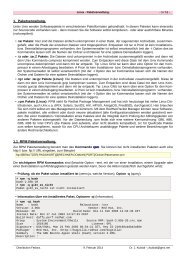
![Parameterdarstellungen [ x(t), y(t) ] Eberhard ... - home . snafu . de](https://img.yumpu.com/22517728/1/184x260/parameterdarstellungen-xt-yt-eberhard-home-snafu-de.jpg?quality=85)
